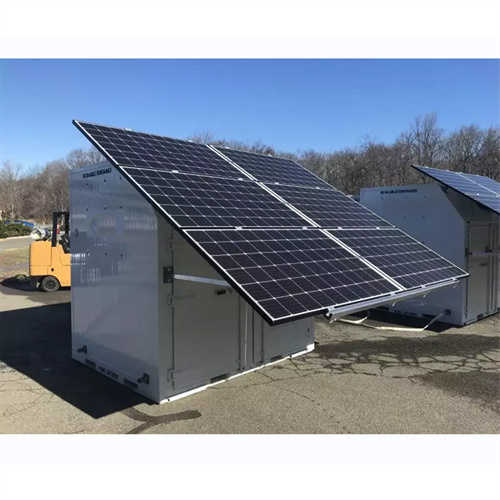About Domestic energy storage space
Thermal energy storage (TES) is required to allow low-carbon heating to meet the mismatch in supply and demand from renewable generation, yet domestic TES has received low levels of adoption, mainly limite.
••Thermal energy storage can provide great flexibility, especially for l.
Heating currently accounts for 37 % of worldwide greenhouse gas emissions mostly through burning fossil fuels, which needs to be reduced to meet countries' net zero targets [1]. F.
In order to decarbonise heating, the source of the energy needs to come from low-carbon sources. As this is generally considered to be from variable renewable energy generatio.
A survey has been completed of the literature [6], [7], [8], [9], [15], [32], [33], [34], [35], [36], [37], [38], [39], [40], [41], [42], [43] to gather data on existing and under development SH.
To better understand how TES operates in domestic applications and which TES parameters are most effective to improving its performance, various TES and heating demand scenario.
As the photovoltaic (PV) industry continues to evolve, advancements in Domestic energy storage space have become critical to optimizing the utilization of renewable energy sources. From innovative battery technologies to intelligent energy management systems, these solutions are transforming the way we store and distribute solar-generated electricity.
When you're looking for the latest and most efficient Domestic energy storage space for your PV project, our website offers a comprehensive selection of cutting-edge products designed to meet your specific requirements. Whether you're a renewable energy developer, utility company, or commercial enterprise looking to reduce your carbon footprint, we have the solutions to help you harness the full potential of solar energy.
By interacting with our online customer service, you'll gain a deep understanding of the various Domestic energy storage space featured in our extensive catalog, such as high-efficiency storage batteries and intelligent energy management systems, and how they work together to provide a stable and reliable power supply for your PV projects.
Related Contents
- Domestic gravity energy storage enterprises
- 2025 domestic energy storage installed capacity
- Domestic energy storage costs
- Energy storage overseas sales and domestic
- Domestic energy storage equipment fan
- Energy storage battery domestic unicorn
- Domestic energy storage standards
- Current status of domestic shared energy storage
- Domestic energy storage micro switch wholesale
- Us domestic energy storage companies
- Iraqi domestic energy storage box
- Domestic energy storage battery pack box field


